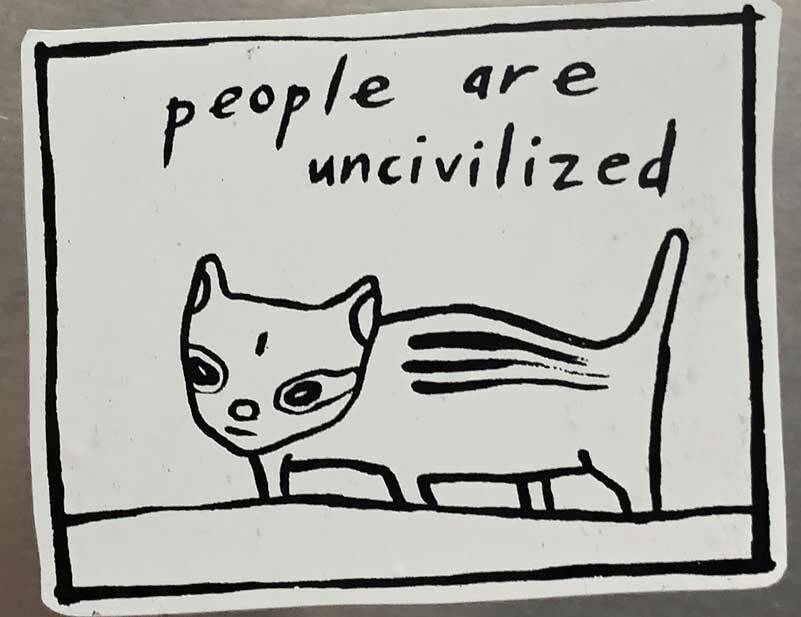By Morf Morford
Tacoma Daily Index
“Slogans are where thinking stops” is a line from a English textbook I used in my classes for several years.
Slogans, like bumper stickers, summarize a statement or belief in just a few words.
They capture the essence of a belief, value, or opinion.
Lots of people love them – or at least they eagerly display or repeat them.
Because they are so succinct, they usually need a larger context or some set of assumptions that frames then and adds meaning to them.
Most of them, just a few years later, or even in another town or region, lose all meaning and relevance.
In other words, a statement that many of us firmly believe and loudly (or at least visibly) proclaim, fairly quickly evaporates – or drifts into irrelevance.
This principle holds true in every arena of human endeavor. From health care to politics to parenting and much more, simple solutions prevail – until they don’t.
Preposterous and convincing statements, belief systems and solutions emerge and over time drift into eventual absurdity.
The more things change
For example, did you know that powdered mummies (and other extracts of human remains) were once hailed as near-universal cure-alls?
You can see more on the once-legitimate use of mummies and other body parts as medicine here.
We are far from immune to such illusions.
But most of our thoughts are not even remotely that profound.
In our culture and time, personalities and statements glow red-hot, and figures hold our attention, either as saviors or demons – and we obsess about them and are convinced that they are the ultimate evil or the one who will save us.
From Hillary to Colin Kaepernick to Bill Cosby to The Dixie Chicks to OJ Simpson, and many more, reputations and fortunes have tilted, flipped and reversed in the ever-fickle court of public opinion.
And, as you might guess, when thinking “stops” thanks to reliance on slogans, our brains become lazy and more susceptible to the next blazing headline.
In fact there is a measurable difference in those who obsess over celebrities and fads. You can see the details on one study here.
Tastes change, rumors flourish and opinion-makers or “influencers” tilt public perceptions until what was once idealized has become yesterday’s news.
And, in what could only be considered the ultimate result (so far) of this short-cycle of our public attention spans, has emerged a near-panic driven obsession with “cancel culture”.
There is a relatively new category of self-promoting prophets who warn us about the dangers of a new, liberal-tilting tide of cancel culture that would “erase our history” by removing statues or re-writing our history – even our national identity.
The irony though, is that “cancel culture” is how history has always worked.
An existing empire declines and another emerges to take its place to dominate the world’s stage.
From the ancient Greeks to the Roman Empire to the rise of Europe to the emergence of the United States, or the technological leap from the telegraph to the telephone to the cell phone, change, sometimes even progress, is inevitable.
In fact there is nothing more reliable in daily life or human history than some expression of cancel culture – and of course, its corollary; everything old is new again.
The tides of history and fashion – and public opinion rise and retreat on a schedule that few of us (apparently) might recognise.
But some do.
Consider these timeless observations from Ecclesiastes;
1 To every thing there is a season, and a time to every purpose under the heaven:
2 A time to be born, and a time to die; a time to plant, and a time to pluck up that which is planted;
3 A time to kill, and a time to heal; a time to break down, and a time to build up;
4 A time to weep, and a time to laugh; a time to mourn, and a time to dance;
5 A time to cast away stones, and a time to gather stones together; a time to embrace, and a time to refrain from embracing;
6 A time to get, and a time to lose; a time to keep, and a time to cast away;
7 A time to rend, and a time to sew; a time to keep silence, and a time to speak;
8 A time to love, and a time to hate; a time of war, and a time of peace.
– Ecclesiastes 3:1-8, King James Version
All too often we are distracted by the noise and intensity of shrill slogans and those who would steer us to their own ends.
Few things are more important now, and at every time in history, than the ability to stand aside and consider what really matters and what will last.
And what, perhaps, we will be glad we stood for as time has passed.
After all, every season and passion will pass.
It is what we stand for, in spite of the seemingly urgent fury of current opinion, that will define us.
There are seasons in every country when noise and impudence pass current for worth; and in popular commotions especially, the clamors of interested and factious men are often mistaken for patriotism. – Alexander Hamilton
Time and tide wait for no one.
It’s one of the oldest sayings, far older than the English language, and still holds true.
And it’s still news for some of us.





